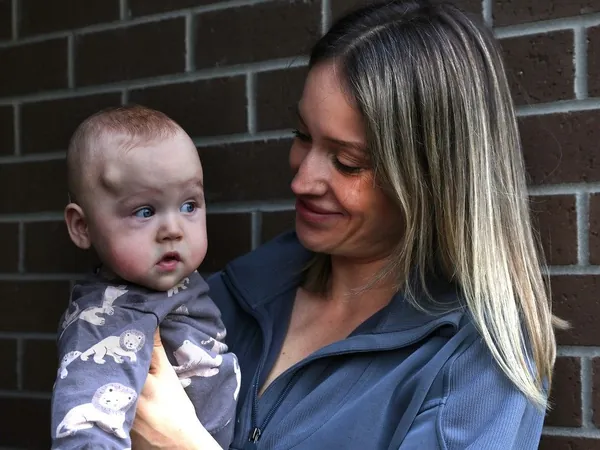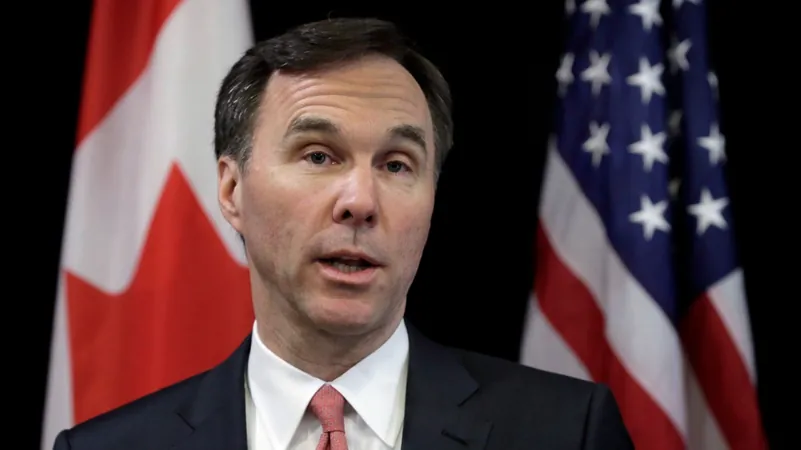
Vancouver Mother Questions RSV Vaccine Access for Premature Baby
2024-11-08
Author: Noah
In a heartfelt plea, a Vancouver mother is raising urgent questions about British Columbia's approach to immunizing infants against respiratory syncytial virus (RSV) after her premature daughter was denied a potentially life-saving vaccine.
Lauren Colborne's baby, Georgia, was born extremely premature at just 25 weeks and six days, facing a daunting battle for survival in the neonatal intensive care unit for over 110 days. Health experts warned that without vaccination, Georgia could be at risk if she contracts RSV, which is particularly dangerous for preterm infants and is the leading cause of hospitalization in Canadian children.
Despite undergoing a rigorous assessment process, which included a note from Georgia's pediatrician and a submission to the Provincial Health Services Authority's RSV program, Lauren was devastated to learn that her daughter was not eligible for the vaccination. “It’s infuriating. We do everything we can to help keep our children safe, but the B.C. government is not providing what they need,” she stated.
The problem lies in the province's specific eligibility criteria for the RSV vaccine, which only applies to high-risk infants based on a scoring system that excludes some personal medical risks. Georgia was just two points shy of qualification, and the cutoff age for a critical aspect of her scoring system—being off oxygen support—was missed by a week.
Health Canada has endorsed nirsevimab, a newer antibody treatment that reportedly reduces hospitalizations from RSV by more than 80%. However, unlike provinces such as Ontario and Quebec, which are implementing universal programs for newborns, B.C. continues to rely on an older treatment only available to a limited number of infants deemed high-risk.
Colborne is frustrated by the gap in the system, especially because the criteria did not account for factors such as Georgia's exposure risks at home. “We were in the NICU for 110 days. She had multiple serious health challenges. How sick of a baby do you need to be to get this vaccine?” she lamented.
Furthermore, Colborne is navigating the emotional turmoil of having Georgia hospitalized previously this summer for rhinovirus—a minor ailment for most, but one that poses significant risk for her vulnerable child. With the RSV season approaching, the anxiety of possible hospitalization intensifies, as doctors have made it clear that an RSV infection could be fatal for Georgia.
The B.C. Ministry of Health has not provided clarity on the situation, simply stating that the monoclonal antibodies program is not part of the publicly funded immunization initiative.
Colborne has been desperately seeking access to the necessary medication, even offering to pay for it; however, she encounters systemic barriers that prevent her from obtaining it either in British Columbia or from other provinces. Pregnant women are encouraged to get an RSV vaccine to help protect their unborn babies, but Colborne had Georgia before she could access this preventative measure.
“Georgia was born in the wrong province, at the wrong time,” she concluded poignantly.
As the RSV season looms, many families, like Colborne's, are left questioning the adequacy of their province's healthcare provisions and the protection available for their most vulnerable members. Without urgent reforms and greater accessibility to preventive measures, the stakes remain alarmingly high for premature infants across Canada.









 Brasil (PT)
Brasil (PT)
 Canada (EN)
Canada (EN)
 Chile (ES)
Chile (ES)
 España (ES)
España (ES)
 France (FR)
France (FR)
 Hong Kong (EN)
Hong Kong (EN)
 Italia (IT)
Italia (IT)
 日本 (JA)
日本 (JA)
 Magyarország (HU)
Magyarország (HU)
 Norge (NO)
Norge (NO)
 Polska (PL)
Polska (PL)
 Schweiz (DE)
Schweiz (DE)
 Singapore (EN)
Singapore (EN)
 Sverige (SV)
Sverige (SV)
 Suomi (FI)
Suomi (FI)
 Türkiye (TR)
Türkiye (TR)